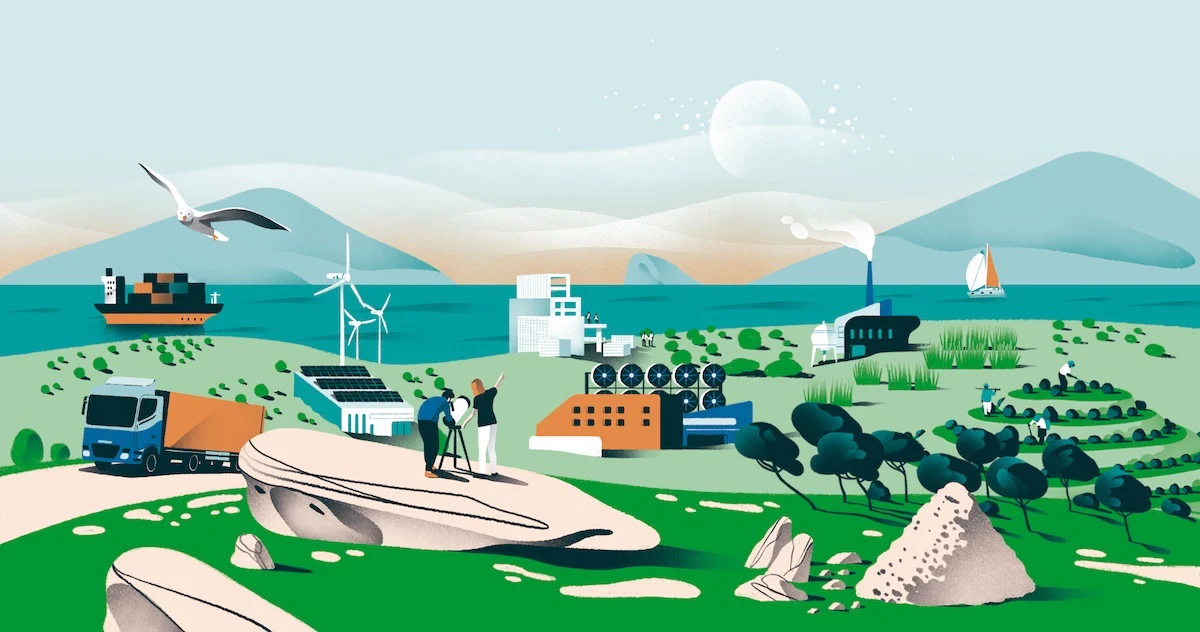Shopify is a leading global commerce provider, as well as a top corporate purchaser of carbon removal solutions through its climate program. The company publicly shares its carbon removal playbook, and details on its sustainability fund, which launched in 2019, and contributes a minimum of $5M annually to support tech-driven entrepreneurs, with $32M already committed to startups.
I spoke with Stacy Kauk, Shopify’s Head of Sustainability, to learn a bit more about the story behind their climate program, in particular, some insights from buying carbon removal for their sustainability fund.
For Part 1, click HERE.
The conversation has been edited for clarity.
What does the buying cycle look like today?
In 2019, we started with a shortlist of known providers and went through an invitation-only closed process. As new companies started to join the market, we would do ad hoc deals with the same invitation-only process.
Then, we noticed that things were starting to explode. There were a lot of new companies entering the space, so in September 2021, we decided to do a timed application process. That was our first foray into an open call, and we ended up with more than 200 applications across the spectrum of forest carbon, soil carbon, direct air capture, mineralization, and ocean solutions, so really wide-ranging. We whittled that down to the top 45 and put those into the next stage of our process to get more detailed information which was a more time-consuming process. At the end of it, we ended up adding 9 new companies to our fund.
We keep the application details up on our website so that new companies understand what they can expect from us when and if we launch another process, which we will probably do once the industry has a chance to expand again.
Do you primarily purchase from individual providers or platforms like Patch and Puro?
Right now, we’re not using partners for any other solutions besides biochar, which we purchase through Puro. That decision is a bit of a Covid story as well because we wanted to get into biochar, but these are typically very local operations; companies have deals with local farmers or processing facilities to get the waste biomass, then they have to send the biochar to a nearby farm or application otherwise all the shipping undoes the climate benefit of the project. We realized we’re not going to be able to see all of these sites while we’re all stuck at home during Covid, and that we needed to find someone that we trust, someone whose methodology was top-notch when it came to biochar projects, and go through them to facilitate the purchasing and vetting so that the carbon removal hits the quality marks that are really important to us.
Speaking of biochar - where do you think the market is today, and where does it need to go to really scale?
It’s really easy to visualize the impact of a big direct air capture facility. By comparison, an individual biochar project or installation will never have the impact needed on its own to have a massive climate impact. But biochar is a really wonderful decentralized solution, where you can prove it out in one place and deploy it in other locations in a way that mirrors the food system.
However, I think it’s still super early, it’s not mainstream yet, and we need to do a little more work on thepermanence component to really understand 1) how long does that biochar hold its carbon in the different places you can put it, and 2) where should you put it. I think if there’s more research and data around the permanence component, it will help push that vertical forward.
Key Takeaways for carbon removal providers:
- (From Part 1) Align your value and story with what your customers are looking for, and to the extent possible, what their customers are looking for.
- Be nimble and ready to enter the buying cycle via referrals, timed application cycles, and partnerships.
- Lean on scientific evidence on key impact indicators for your solution (eg permanence).
Outlook & Current State
As of the writing of this article, Shopify highlights 22 partners in their sustainability fund ranging from transportation solutions like Remora to nature-based solutions like Loam.
In April 2022, Shopify joined Stripe, McKinsey, Meta, and Alphabet as a member of Frontier, an advance market commitment (AMC) to purchase almost $925M of permanent carbon removal before 2030. In June, the fund announced its first group of six startups to receive funding, with another group slated to be selected in the fall.
About The Author

Christina manages Sales Enablement programs at Instrumental Inc, a cloud manufacturing optimization platform that partners with electronics brands to improve engineering efficiencies and reduce scrap/waste. Her professional background is in energy efficiency, with roles in revenue operations and sales development at Carbon Lighthouse, following an academic background in environmental engineering. Outside of the climate world, she supports the San Francisco Beacon Initiative as a member of their Associate Board, and in her spare time is an avid enthusiast of hip hop and house dance, the outdoors, and good food.

